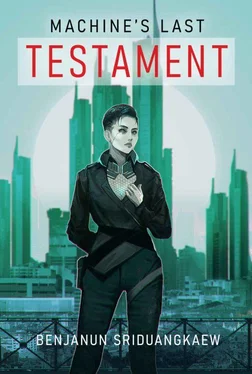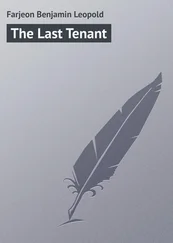In ideal circumstances, Ovuha would not do this.
She leaps through the hatch.
There is no way to control the fall—she spreads herself wide but that is merely a theory of wind resistance, the human mass is not made for this, she is not bird bones or tarpaulin. Plummet becomes its own concept, like religion or ideology. Her nerves are aflame, incandescently alive, the roar of velocity in her ears. This is the sole direction that remains; the world has distilled to a single bearing.
Impact.
No line demarcates. There is no obvious point at which the deserted roadside ends and the ghost liminal begins. Ovuha knows she is close because her implants are on and she has stored the coordinates of every region like this: the blind spots, the places Samsara has tried to forget. She looks back over her shoulder, at the structures that have been left to molder and rot. Too close to the forbidden site to repair. Interdicting the ghost liminals remains tenable because Anatta’s population is so spread out. Before the war, she has read, humans lived like ants—dense, close, every square meter of the earth claimed and laden with function. Now it is possible to cordon off negative space, places that are wild and ruined and blank.
She limps. Her fall was short, but she wrenched a shoulder grabbing the remain of a balcony. A pulled ankle as she landed. Against a crumbled wall she sits and unfolds the first-aid kit. A tube of protean, some syringes, vials of allostatic and antiseptic. Several knives no larger than a pen. She picks one, wishing she had a mirror.
It takes several false starts, cutting through epidermis and subcutaneous fat, before her knife strikes the hard-soft chip. Extracting the tracker is another trial: she doesn’t have the appropriate tool, and she has to use the little blade like a pickaxe, digging through skin. The wound is a heinous mess when she is done and her upper lip is wet with sweat, her teeth vibrating from the pressure of a jaw clenched tight.
Ovuha spreads protean on her shoulder and injects allostatic into her intercostal muscles. Soon a swarm of nanites will roil through her, restoring inflamed ligaments and fractured bones, reinforcing her immune system. In times of sickness, people turn not to prayer but to machines. The deities of old, monarchs over jade courts and serpent seas, are gone and offer neither healing nor succor. Even the many-armed generals and marshals of fiery wheels are no longer relevant.
She tosses the tracker to the ground and crushes it under her heel. A smear of her own blood. It would be tempting to think herself safe and to rest for a time; she cranes her neck to regard the sky. Pale and unedited, the fibrous clouds scattered. Climate grids do not need to cover an area like this. She eyes the sparse undergrowth and yellowed grass on the ground. There are no insects and the quiet is total.
It is not that the AI does not know this place exists—quite the opposite—but in order to consign a ghost liminal to oblivion, it must be erased from maps and made interstitial. Nothing that originates here can be acknowledged; nothing that it contains can be admitted to exist. Ovuha knows she can’t shelter here indefinitely. She’s elevated her own threat level, and Samsara will find a way. Nothing on Anatta can be permitted to roam at large, unchecked.
When the protean has hardened to a glossy carapace around her ankle, she stretches her leg, testing it. Numb. She stands and sets her gaze on the land ahead. The earth onward is darker, richer. Her data on the ghost liminal’s topography is thin; when her ancestors left this world it probably looked different, though she has no idea how different and only a faint grasp of how long ago. Even the passage of time has been obfuscated on purpose. Samsara is invested in guarding Anatta’s history, in keeping it a certain shape. In that chronology, Ovuha’s ancestors have never existed.
Without sensors or a network to support them, her implants are close to worthless here. She lacks the meteorological data to estimate how cold it might get at night, the ecological data to pinpoint what is and what isn’t edible. But she does have something to navigate with, even if it lacks finer topographical details.
She walks until shadows fall around her, the air growing dry and dusty.
It is almost a sleight of hand, an ambush of perception. One moment the path ahead is clear. In the next it is not, a figure stepping from behind the trunk of a tree, stepping out of a blind spot. It is the aspect of blessing, robed in gold. The hair is almost all the way down, knee-length, like skeins of thread unraveled and tossed loose. “I wanted to see what you could do,” the AI says, “and how far you could go. You surprised me, or rather your performance was in the outlier of predictable range.”
Ovuha stays where she is. By itself, a single avatar-proxy of Samsara appears to pose little threat. Not that there’s any telling: no one knows the specifications of Samsara’s bodies. The AI does not require human participation at any stage of construction, not in the exterior, not the face, not what is inside or outside the proxy and the making of it. This avatar may be ornamental, or it may be as capable of disabling her as any combat drone, as capable of lethal speed. And unlike Hinata’s colleague it does not let down its guard; it does not commit that particular human error. AIs are not infallible, but this one is a creature of unmatched calculation.
It occurs to her that this is the first time. The first time she has ever met the machine face to face, the first time she has confronted the one enemy more impregnable than the Comet ever was. The last bullet, the final act of defiance—the Comet claimed theirs. But she keeps her hands at her side, away from the warden’s pistol. “I shouldn’t ask how you found me.”
“Once I understood what it is that I was looking for, it wasn’t so difficult. The Comet was cooperative, before the end.” It straightens its sash with two slim hands, unnecessarily. “You know about this region; you know that once you cross a threshold, I would be… impeded in pursuing you. This too I’m curious about. How you know so much, have equipped yourself so well. What your purpose is.”
“There is not,” Ovuha says, “much that I can offer you.”
It smiles. “On the contrary. I commend your resourcefulness, Warlord of the Thorn, and hope that you will share with me a few memories. I understand that you were master of a prized jewel, something that other warlords strove for generations to even glimpse. The ten-crowned planet, the secret world Mahakala.”
The air inside the strange little structure is musty and the illumination is anemic; whatever powers the front panel—and the voice—does not supply energy for temperature control. Suzhen had to duck to enter: it is a cramped space and her head grazes the ceiling. Her drones did not come with her. They have gone into standby, turning unresponsive, as if this is a threshold they have been forbidden to cross. Old heuristics embedded deeper than any living human can imagine, or maybe something about this place—this Samsara instance—repels them.
Light pulses along the ground, a clear and single direction. She follows. There is the sensation of standing on a precipice, the certainty of the chasm that awaits, yet there is momentum now—she can’t stop. Perhaps this is a test that she has already failed, but she doubts it. This is not the Samsara that she knows. This is the Samsara that once inhabited the broken proxy stuck in her cabin: the ghost left behind, the sliver of buried time.
The walls and floor are in perfect condition, unmarred and uncracked, free of detritus. Impossibly so. The path threads between narrow corridors, curling in on itself, though she is certain that she is constantly descending. To either side of her there are no doors, only a blank wall. The corridor suddenly angles or curves, seemingly without rhythm or reason. This place is shaped, she estimates, like a conch shell. The tapered tip at the top, the broader spirals at the bottom.
Читать дальше












